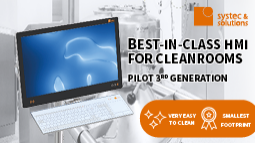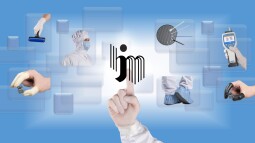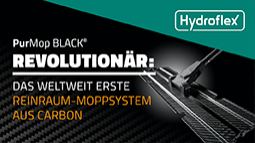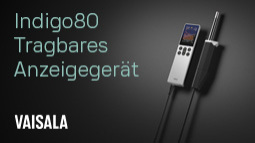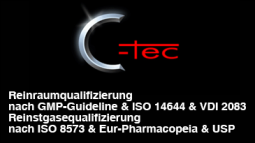Avoiding bad investments: Modular platform enables flexible adaption to changing requirements for the packaging of solida and parenteral medicines
Retrofitting is possible even years later by replacing and adding modules
Solida and parenteral blister packs are often produced on monobloc machines designed for specific applications. Format changes are complex and expensive procedures. In packaging medication, the pharmaceutical industry must not only meet the highest quality standards, but also increasingly cope with minimal production times, and so be able to use packaging systems very flexibly. This demands new machine designs, so Mediseal GmbH has developed a flexible blister and cartoner machine portfolio based on a modern modular system. The future-proof Blister Expert platform makes it possible to configure a machine for a specific need by choosing from multiple modules, and assemble the machine immediately using these pre-produced components. Special components and modules can also be designed and built. By switching out and/or adding modules, a Blister Expert machine can be comprehensively modified at a later date to address new products or future challenges. The only real limitations are the available space and the predefined interfaces.
Blister packs are used in the pharmaceutical industry typically to package individual doses, especially of solida like tablets and capsules, as well as parenterals in ready-to-use hypodermics, ampoules and the like. “Many manufacturers offer monobloc machines for this purpose, which users purchase for a specific application,” explains Ulf Leineke, Director R&D at Mediseal GmbH, a company in the Körber Group with over 11,000 employees worldwide. If requirements change, these machines are all equipped to be easily modified. Typically it requires a lot of engineering effort and consequent down time. But in many cases, it cannot be modified at all or only with great effort. In many cases, it then becomes necessary to buy a new blister machine.”
With the 100% modular Blister Expert platform from Mediseal, which includes blistering as well as cartoning solutions, this is no longer necessary. “In a modular system, existing machines can be adapted to meet future needs, since their functions can be altered within the limitations of the available space and previously defined interfaces,” according to Ulf Leineke. “For example, if there is an innovation in the sealing function after the machine is taken into production, the old module can be replaced with a new, improved version, since both are designed to be interchangeable.” This lets manufacturers address the ever shorter innovation cycle times in the pharmaceutical industry.
Retrofit capability including extending machines in the field
For companies such as contract packagers, whose dependency on orders means they cannot predict their needs years in advance, the ability to purchase options or modules later provides a high level of future safety. This can be illustrated with an example from ampoule packaging. Normally, ampoules are presented in blister packs without needing to be sealed by a lidding foil. With a modular system like the Blister Expert platform, a company that takes in such an order can acquire a machine specifically for this purpose. The company doesn’t need to include the components necessary for sealing with lidding foil.
However, if a later order requires lidding foil sealing, for example due to subsequent sterilization, a sealing station can be added. Standardized modular attachments even let the machine be expanded in the field. “This makes it possible to separate the blistering machine and cartoner, and insert another module between them,” explains Stefan Kemner, System integration & Portfolio manager at Mediseal GmbH. On conventional non-modular blister machines, the inability to retrofit presents companies with the need to cover possible future requirements at the time of purchase by including expensive functions that they may not end up ever using.
Shorter delivery times through configure-to-order
Building blistering lines with a modular design has other advantages. With the Blister Expert platform, it enabled Mediseal to implement a full configure-to-order approach. “The customer gives us basic information which we enter into a configurator, for example which solida and/or parenterals are to be packaged, and what performance category is needed. The customer can then choose from among various package options, for example optimizing the machine for easy conversion, ergonomics or productivity,” explains Stefan Kemner. “This configures the system exactly for the target product.” The configurator identifies the necessary modules, and based on this information the production order is placed. Mediseal then sources the necessary components or assembles premanufactured modules. This differs from the conventional process, in which a designer first brings together the individual parts and assemblies based on the customer order, and the production order is then prepared from that. This step, which is costly and error-prone, is eliminated in the Blister Expert system. Furthermore, any Mediseal cartoning machine can be configured downstream of the blister machine, unlike many other systems where only one cartoner fits the chosen blister machine.
In addition, Mediseal can build special systems. “For example, if a customer wants a UV disinfecting station or another option that we haven’t yet included as a standard component in our module pool, we’ll develop the necessary element,” says U. Leineke. “We can do this because either there is the space for it at the proper point in the machine we already configured, or we simply extend the machine length a little.” While the additional module is being designed, the standard modules are already in production so the system as a whole can be taken into operation sooner.
Modularity for less downtime
At the same time, the modular design helps keep machine downtime to a minimum. When changes need to be made, replacing old modules with new ones or retrofitting others significantly reduces validation effort. “The pharmaceutical manufacturer doesn’t need to revalidate the entire machine, just the new module,” explains Ulf Leineke. “Thus, during upgrades, the machine is out of use for much less time than systems that do not use a modular design.” Furthermore, if a machine in use malfunctions because a component is defective, with a modular system it can be replaced by a module that the machine manufacturer has previously fully commissioned. By contrast, with conventional blister packaging lines, it is usually necessary for a technician to take the machine apart and determine which parts are affected. Typically, only then can the necessary parts be drawn from stock, which takes much more time.
The Blister Expert Platform helps reduce downtime in another way as well. Mediseal’s solution is designed so that a format change needs no tools, and only a few light parts need to be switched out. This noticeably reduces format changeover time. The ergonomics have also been improved. The design works mostly with curves and rounded edges and avoids corners and angles. This makes cleaning much faster, for example during a line clearance or product change. By reducing dirt traps, it increases machine availability.
Compatibility with Pharma 4.0
The Blister Expert system is ready for Pharma 4.0. For example, a predictive maintenance package is available that shows the user the regular maintenance intervals as well as immediate needs, such as when wear parts like the suction cups on the suction wheels no longer function well and need to be replaced. If there are frequent changes in format or operating personnel, the Guided Format Change option is recommended. This features augmented-reality goggles that guide the operator through the format change step by step, showing the operations on the goggles’ display. Mediseal’s proprietary HMI used to operate the Blister Expert series is also very user-friendly. The user interface is reminiscent of a smartphone, and is based on self-explanatory symbols and graphics, with task-oriented jobs that can be individually adapted. “The production manager is presented with pre-programmed elementary actions, and can assemble them into a job by drag-and-drop,” says S. Kemner. “Additional actions can be entered or defined as well.” This intuitive structure prevents errors and incorrect machine operation, especially if the guided mode is used.
In addition, the machine can be equipped with all-digital interface solutions that let machine data be provided to Level 2,3 and 4 systems in a standardized manner. Thus, in plug-and-produce scenarios, monitoring systems present at the site can capture machine status in a standardized way, so that the company can better asses the condition and productivity of its machines, and perform maintenance as needed. “Within our company group, there is also the option of equipping the entire line with a line manager called – LION. This provides a consistent data flow for the blister and cartoning machines, and can incorporate a third-party scale and bundle packer,” explains Stefan Kemner. “This enables guided format change on the third-party machines as well.” Thus, the Blister Expert platform provides a high degree of future safety in blister packaging for many years.
Mediseal GmbH
33758 Schloß Holte
Germany
